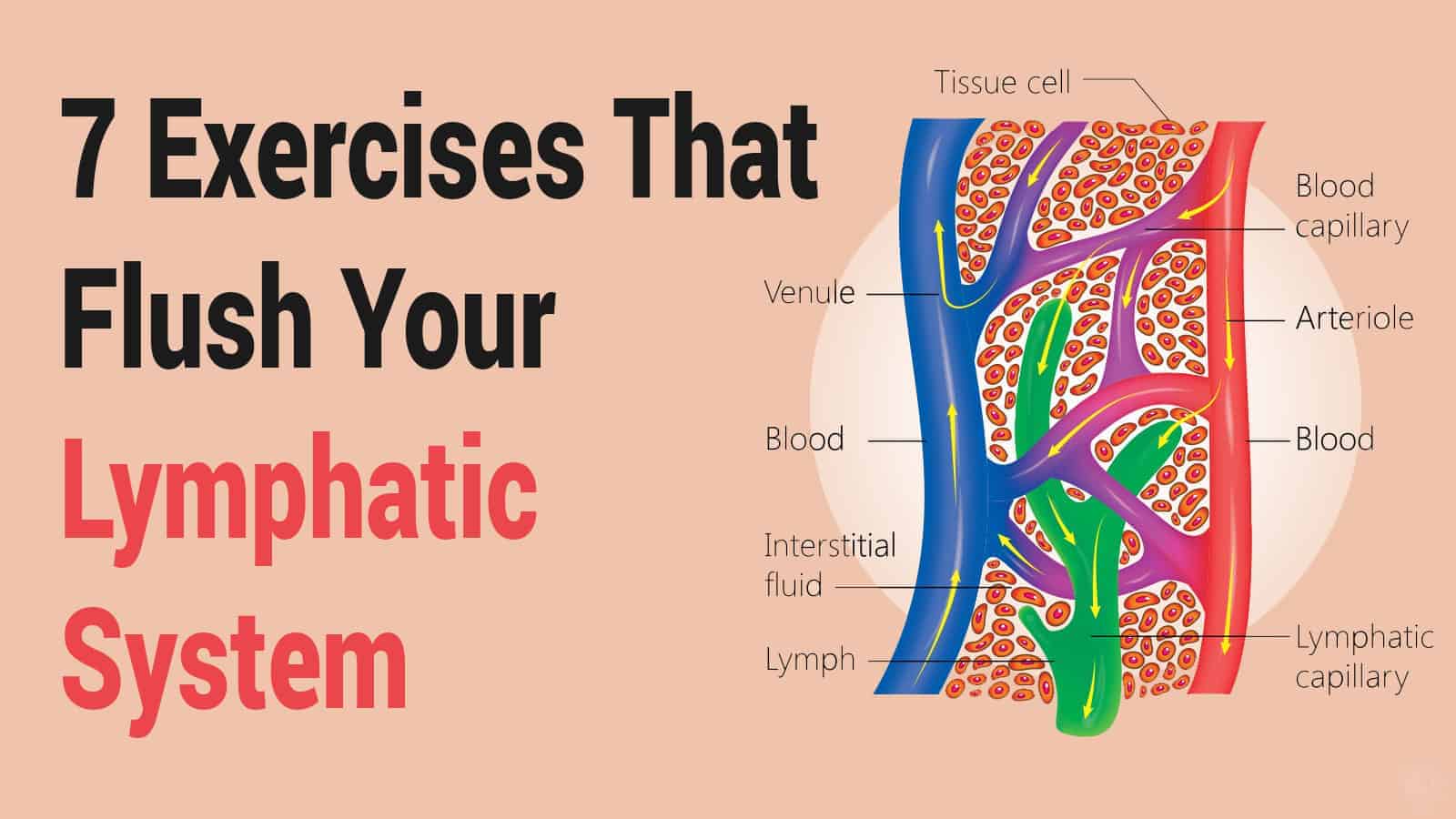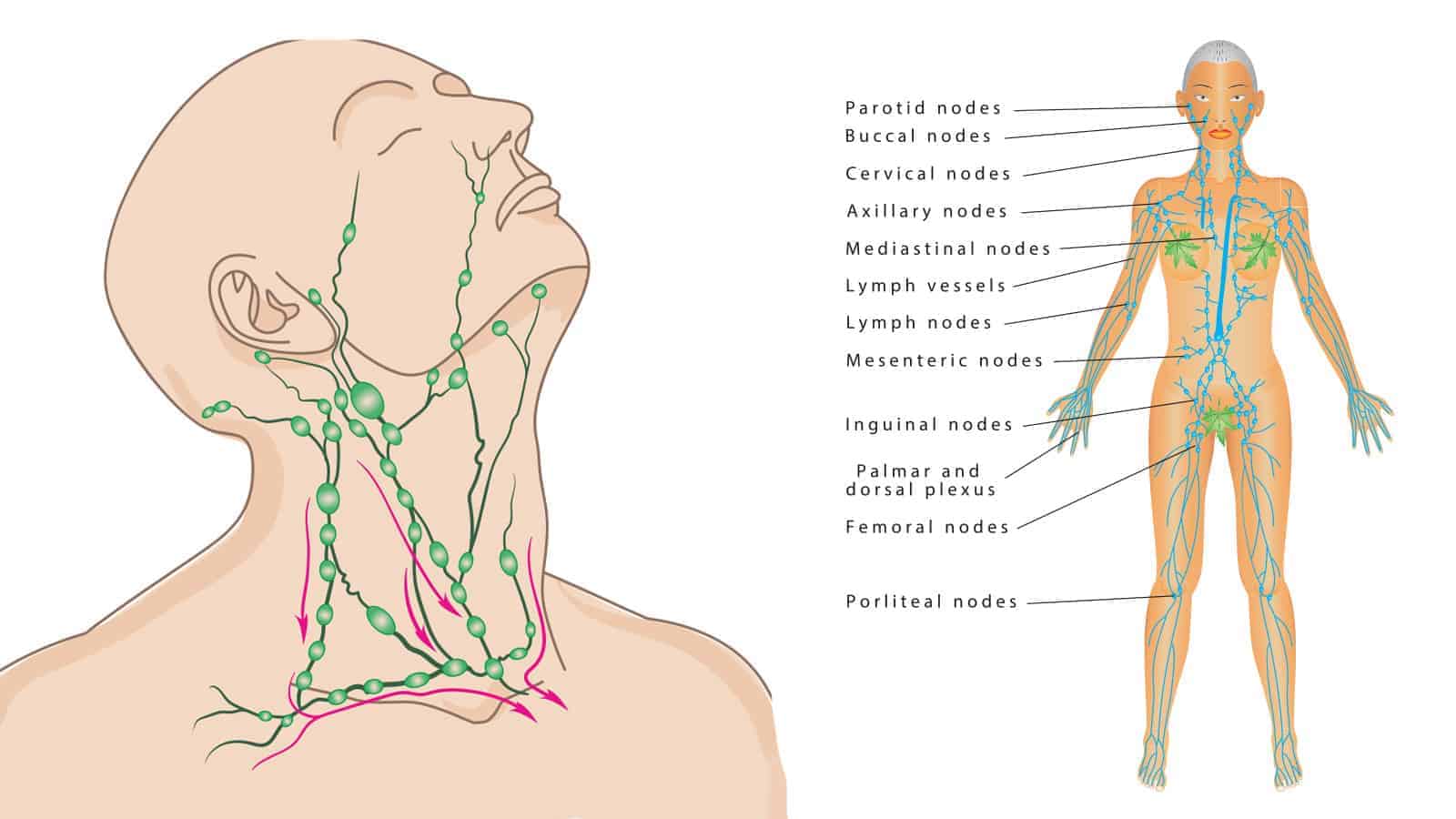Your lymphatic system, though independent, is one of the most vital components of keeping you healthy. The primary purpose of this system is to transport a fluid called lympha towards the heart. In Latin, lympha means “freshwater,” which is essential for your entire body.
To understand the benefits of this vital system, you must recognize its function and purpose. It’s a tissue network, not an independent organ like the heart or liver. It comprises vertebrates, which are also part of the immune and circulatory systems.
You will find organs, tissues, and lymphatic vessels within this network. The one you are probably most familiar with is the lymph nodes. These little bean-shaped forms are a vital part of your immunity.
The nodes contain white blood cells that help to fight off disease and infection that enters your body. You will become aware of their presence as they become large, inflamed, and painful when battling an illness. The most sensitive ones are in the back of the neck and the armpits.
Though you may quickly notice the ones around your head, hundreds of these nodes are throughout your body, each of which has a vital role in your immunity.
Why Lymph Fluid Collects?
Lymph fluid is vital to water that must reach the bloodstream. Your lymphatic system will collect any excess of this fluid to put it back where it belongs. This process is imperative because your body has protein and other substances that ooze out of your capillaries, and if it’s not removed, it can cause inflammation.
When the extra fluid pools in an area, it causes swelling. An example you can probably relate to is swollen feet or ankles from sitting at a desk all day. Do you ever experience this common form of edema?
Though the lymph fluid dumps into the bloodstream, it doesn’t use the stream to get where it needs to be in the body. Instead, it depends on the muscles to contract and push it through the proper channels. When you sit in a stagnated position for several hours, the lymph has difficulty getting disbursed.
However, once you get up, your body instantly pushes the fluid to the appropriate destination. Thus, you are draining an area and helping the pooling lymph to move on.
Draining Your Lymph System
Keeping bodily fluids in balance is a difficult job. Consequently, you can help to boost your lymphatic system when pooling occurs by assisting the drainage process. For instance, if your neck is swollen and the lymph nodes are tender, they can be eased with a gentle massage.
The muscles in the area constrict, but they don’t release. The excessive fluid is trapped in this region because the body’s defense system has indicated a foreign invader. By rubbing this area with a soothing motion, you can promote drainage.
Once the fluid starts moving again, you will feel some of the swelling released and the pain. You can also promote drainage by exercise. As you sit at your desk, your feet begin to collect lymph fluid. When you get up and start moving again, the fluid disburses.
So when you move, it helps push your lymph fluid in the right direction. If you’re on a plane or a car ride for several hours, you should get up or out of the car and stretch. A simple walk into a gas station can help to prevent swelling.
Understanding Lymphedema
Have you ever seen someone with one leg dramatically more substantial than the other? It’s often caused by a common problem called lymphedema. You will often see this condition in overweight people or suffer from morbid obesity, though it can happen for other reasons.
Lymphedema is where the fluid collects in a particular area and becomes trapped. Your skin has three layers. Just as you can get clogged skin cells on the surface, you can also get them under the surface. These dead skin cells can clog your lymphatic system and cause the fluid to be unable to drain.
Though lymphedema is often seen in the legs, it can also be seen in the arms. Though skin cells are a common cause of the breakage, it can also be caused by cancer, medication, injury, or an infection. It can become quite severe and requires prompt medical attention.
When you first notice fluid pooling, the skin will be soft and pliable. However, as the liquid collects, the area will become dense and fibrous. You may notice pitting, and the limb will be hard to move as it gains more weight from fluid retention.
The Danger of Lymphoma
Another problem that can occur in the lymphatic system is lymphoma. This system contains the spleen, thymus gland, bone marrow, and your nodes. Since this part of your body is vital for removing impurities, sometimes a malfunction can cause grave danger.
Lymphoma is blood cancer, and it’s divided into two categories, Hodgkin’s or non-Hodgkin’s. Damaged cells begin to mutate and crowd out healthy cells. Since the lymphatic system drains into the bloodstream, it sends cancer throughout the body.
Lymphoma means “water tumor” in Latin, and it was named after Thomas Hodgkin, who discovered this condition in 1832.
Illnesses that Hurt the Lymphatic Structure
Like any other body part, your lymphatic system can feel stress. If this area is feeling angst, you may experience some of the following things:
- Aches and pains of the muscles and joints
- Sore throat
- Having more frequent infections of viruses
- Chronic fatigue
- General malaise
- Arthritis or other symptoms that mimic fibromyalgia
- Swollen lymph nodes
Walking through your daily life, you will pick up bacteria from your environment. The bacterium becomes trapped in your body, and the lymph system immediately starts to destroy them.
Unfortunately, sometimes the system does all it can, becoming overloaded and not functioning as it should. During these times, you will experience overload symptoms, as listed above.
7 Ways to Boost Your Lymphatic System
It’s easy to see that keeping your lymphatic system operating fully is imperative. However, you may not know what you need to do. Properly draining it during times of inflammation is a big help, but more things are needed. Here are seven things that can help keep this vital system in shape.
1. Eat an Anti-Inflammatory Diet
There are hundreds of diets, but have you heard of the anti-inflammatory diet? It’s cutting out foods that put any stress on your system. Rather, you need to eat a diet that is rich in the following:
- Salmon and other Omega-3 foods
- Pumpkin, chia and other varieties of seeds
- Olive, coconut, and other unrefined oils
- Cruciferous vegetables like cauliflower and broccoli
- Add garlic, ginger, and turmeric to your foods
- All leafy green vegetables
2. Exercise Often
You need to get that lymph fluid flowing, and it’s hugely beneficial when you exercise for this system. Even if you only have time to do a brisk walk in the evening, it can help you.
3. Self-Myofascial Release
After a workout, you need to try self-myofascial release. This is where you use a foam roller to go over areas of your body to stimulate lymph movement. It helps to repair any tissues hurt during exercise by promoting blood flow to the area needing repair.
4. Lymphatic Drainage Massage
This type of massage therapy helps the body ease lymph congestion. It helps your body flush excess fluid and eases inflamed nodes, muscles, and joints.
5. Get Enough Rest
Your body needs at least seven hours of sleep each night to heal and restore. Your systems won’t work as efficiently if you’re not getting enough sleep. Sleep deprivation is a real problem that has serious consequences.
6. Incorporate the Use of Infrared Saunas
When you sweat, you expel impurities from within the body. An infrared sauna helps to stimulate sweating to detox the body naturally. Now, it can even be done in your home. It’s very healing and beneficial to chronic pain conditions too.
7. Quit Smoking
If you smoke cigarettes, then you are putting your body under oxidative stress. All the carcinogens that you inhale are toxic to your entire system. While smoking is just one bad habit, many other things can cause stress to your structure.
 Final Thoughts on Caring for Your Lymphatic System
Final Thoughts on Caring for Your Lymphatic System
Your immunity depends on the lymph system and its proper function. If there is a breakdown within this structure, you will experience things like swelling, chronic fatigue, and even cancer. You must do whatever you can to ensure your lymph health.
Eating right and avoiding harmful habits like smoking cigarettes is just the start. You can be proactive about your lymph health; your entire body will reap the benefits.






















